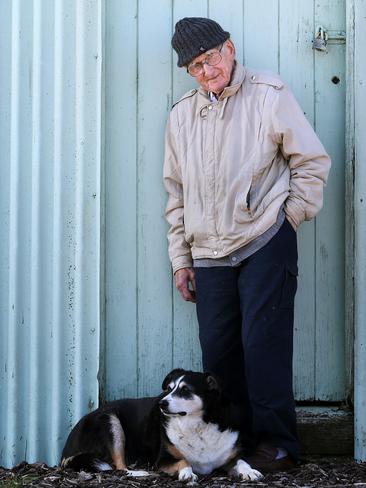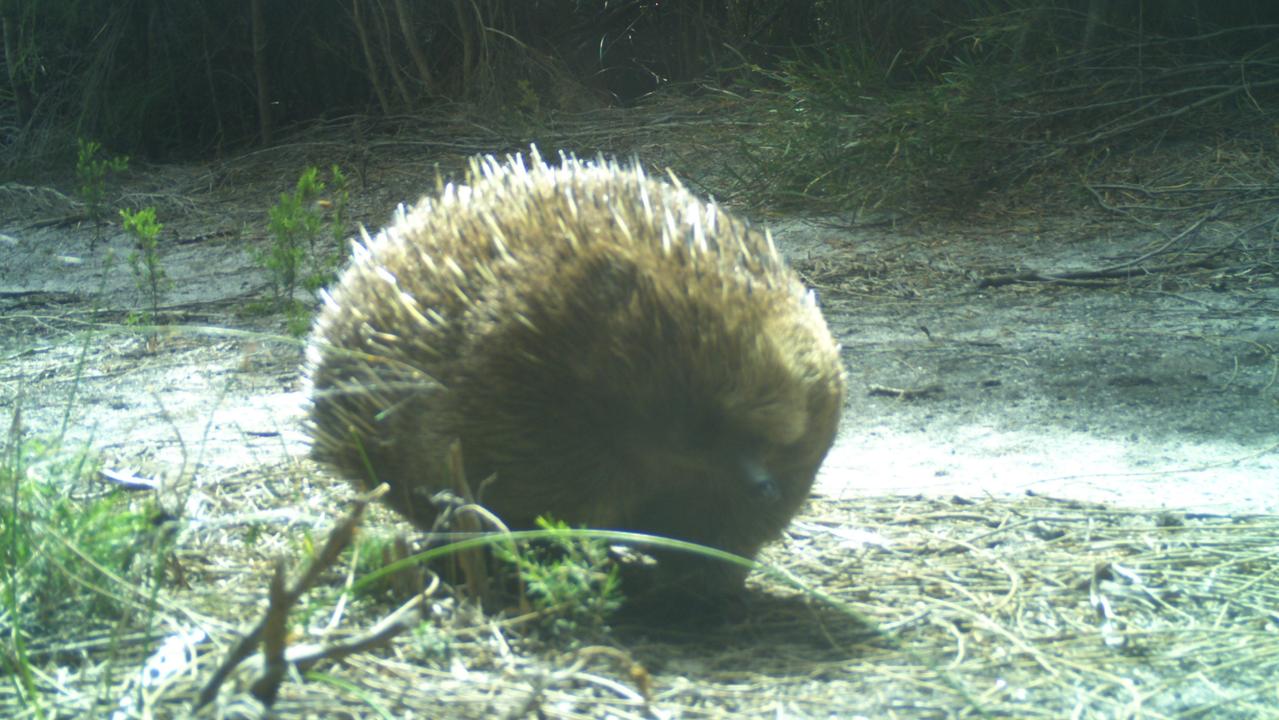TasWeekend: Chas Canden has walked a long road
CHAS Canden has lived a full life since suffering a brain injury that led to a range of problems in his younger days.
CHAS Canden, 88, from Westbury, has lived a full life since suffering a brain injury that led to a range of problems in his younger days.
I was born out of wedlock at a time when unmarried mums were forced to give up their babies. So I was surrendered to a number of other people. Most of them only took me in for the extra money they got from welfare for being foster parents.
When I was 10, I ended up living in the Ashley Home for Boys near Deloraine. In those days, it was a place for kids like me. But now, it’s an institution for boys who don’t do the right thing, which just isn’t right.

I lived there until I was 17. They kept me there a little bit longer than most boys stayed, mostly because I could cook and they liked having someone there who was able to cook for all the boys every day.
After I left Ashley, I lived with some people at Deloraine and started working at Our Lady of Mercy College. I had a job milking the cows every day and did some gardening for the nuns who lived there.
One morning I was riding my bike to work. I was racing down Parsonage St because I was running late – I was supposed to milk all the cows before breakfast – so I had my head down and my bum up, which is why I didn’t see the car coming until it was too late.
The impact spun me around and I hit my head on the passenger side of the car hard enough to put a big dent in the panel.
I broke my pelvis and suffered a terrible head injury. I was unconscious for more than a week and was in plaster for three months at the Launceston General Hospital. I couldn’t go back to work for nearly two years and because of the brain damage I needed people to help look after me. There weren’t many organisations around to support people with acquired brain injuries back then.
In those days we didn’t have social security like we do now. If you were unemployed you got £5 a week and that had to do you for everything. It didn’t stretch far, which is why you went to places such as the Salvos’ soup kitchen to get something to eat.
I used to pinch cheques from people’s letter boxes to get more money. I’d take them and cash them somewhere. I’m not proud of that, but I simply needed the money.
In the 1950s, I joined the army. When I enlisted, they spelt my name wrong on the paperwork. I left it like that because I figured if it turned out I didn’t enjoy it, I could just leave. Eventually I decided I didn’t want to do it anymore, so when I went home on leave, I just never went back.
Of course, they tracked me down and one day there was a knock on my door. When I opened it I saw two provosts [military police] standing there in uniform. They said they’d been looking for me, but when they read my name off their paperwork, it was spelled wrong, so I said, “Nope, never heard of him”.
That trick didn’t work for too long, though. After a while they did get me, and I was taken to court. It was the first time I’d ever gotten in any trouble like that.
Later on, when I couldn’t get a job, I re-enlisted in the army. They spelt my name right that time. I did pretty well in the army, I guess. I mean, I liked the army, but I didn’t like the foolishness of it, the pointless instructions. I was disciplined often.
It was about 40 years after my accident I got in touch with the Brain Injury Association of Tasmania, and finally started getting the help and information I needed.
As I read through the information, I remember coming across a list of symptoms and so forth that described the way I was after my accident.
As I was reading it, I realised a lot of my problems in life were a result of my brain injury, that it had changed me in some ways I hadn’t been aware of. And once you know what you’re dealing with, you’re able to recognise the problems and start addressing and overcoming them.
My brain injury never really bothered me much – it was the way other people responded to me and treated me that caused me more grief.
But with the right information and some assistance I was able to pull my life together.
I’ve worked as a reporter for The Advocate and The Western Tiers, I ran my own cleaning business and I’ve written four books. I think I’ve done a bloody good job with my life, given the hand I was dealt.
Originally published as TasWeekend: Chas Canden has walked a long road



